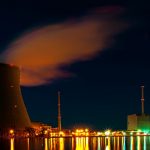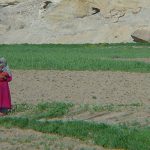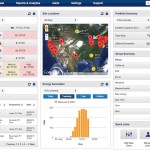
Nuclear power can often inspire thoughts of wanton destruction. I know it did for me. My grandparents, who lived through World War II, used to tell me stories about the devastation at Nagasaki and Hiroshima. I considered nuclear weapons to be humanity’s worst invention, a characterization I carried over to nuclear power. Because I had such a bad image of nuclear weapons, nuclear power, to me, was the most dangerous energy source on the planet. But all that has started to change recently as I have begun to read my supervisor James Hansen’s papers.

Two years ago in Paris, the world agreed that we need to keep the planet from warming more than 2°C. The Paris Agreement further argues pursuing efforts to limit it further to 1.5°C below pre-industrial levels. This daunting task of addressing climate change requires a two pronged approach of mitigating greenhouse gas emissions and adapting to the already changing climate.

Extreme events like droughts and floods are projected to become more common in a changing climate. As they do, their effects on agriculture, health and infrastructure will disproportionately impact those who already have limited socio-economic resources. For this reason, several organizations focused on international development have started to consider climate change projections in their projects and operations. Their goal is to avoid increasing the development gap.

Humans desire for certainty is rooted in the way our brains function. We are programmed to create patterns from our outside world, store them as memories and make predictions. It is the primary function of our neo-cortex.

The final project for the C+S core course Dynamics of Climate Variability and Change challenged students to create a video to explain a concept related to climate variability or climate change.

President Jimmy Carter installed solar panels on the roof of the White House during his presidency. This was a huge step towards energy independence during the Arab Oil Embargo in 1979, not a statement about climate change. It’s clear in hindsight that President Carter was onto something big.









